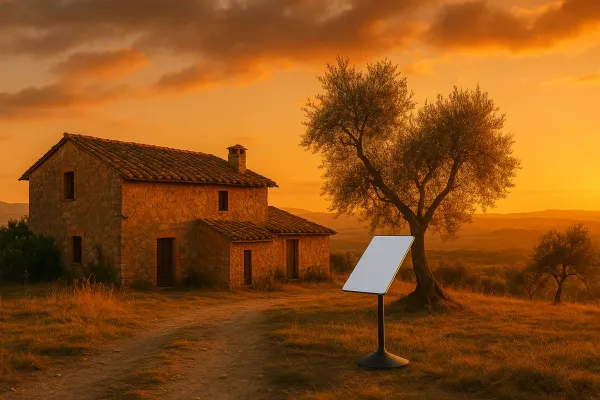Rustic Retreat
Hot Projects
Live broadcasts and documentation from a remote tech outpost in rustic Portugal. Sharing off-grid life, the necessary research & development and the pursuit of life, without centralized infrastructure.
 Subscribe to our new main project Rustic Retreat on the projects own website.
Subscribe to our new main project Rustic Retreat on the projects own website.

Apollo-NG is a mobile, self-sustainable, independent and highly-experimental Hackbase, focused on research, development and usage of next-generation open technology while visiting places without a resident, local Hackerspace and offering other Hackers the opportunity to work together on exciting projects and to share fun, food, tools & resources, knowledge, experience and inspiration.
Although HDD storage densities have increased dramatically over the years, one of the most elemental aspects of hard disk drive design, the logical block format size known as a sector, has remained constant. Beginning in late 2009, accelerating in 2010 and hitting mainstream in 2011, all major manufacturers are migrating away from the legacy sector size of 512 bytes to a larger, more efficient sector size of 4096 bytes, generally referred to as 4k or AF (Advanced Format).
While researching the benefits and consequences of a 512→4k transition, many reports of “partition misalignment issues” were found, that could lead to a severe performance impact which led to a closer investigation to verify the alleged problem and the proposed correct partition alignment. The result is obvious: Misaligned partitions on 4k harddisks introduce a severe performance impact, in this test case by a factor of 5.5 (Aligned: 83MB/s vs. misaligned: 15.5MB/s).
The Apollo-NG website and its underlying/supporting infrastructure was beginning to show some severe issues caused by lacking upstream support for Linux VZ. Additionally, for other reasons, whole IP ranges had to be moved so each Box had an additional interface for the migration period which made HTTP or git communication with github.com impossible. That's why the automated deployment of DSpace failed.
However, http://www.netcup.de/ gratefully decided to stick to their decision to sponsor Apollo-NG's hosted network infrastructure needs and provided a new KVM box with more disk space and memory.
The migration to the new box is complete now, hopefully all name servers got the hint as well. The pads are also back online and should also receive a considerable speedup. In the progression of the update the SPDY (Speedy) protocol was added to collect some metrics about the performance gain and to see how it behaves in a smaller set of the real world.
Hopefully, that will conclude this maintenance/update cycle and free resources to find more sponsors and to continue with ongoing projects
In case you have been here before you might want to hit Shift+F5 and clear your cache to avoid any local caching issues. It was a hard decision to take away available timeslots from other research projects but it was necessary to update the rather quaint and non-committing old design. This project is about the future, about modernization and leaving old, inherited, legacy ballast from many contexts of human activity behind. The UI should reflect that.
Luckily, just in the same timeslot the DokuWiki developer crowd has finished the new Weatherwax release, which fixed a lot of issues and drastically decreased the amount of necessary plugins to get all needed features for this site. So a big thanks to all the people who have participated in DokuWiki is in order.
DokuWiki has proved itself here as a totally versatile platform, mixing together features of content-management-systems, wikis, blogs and enough freedom to intertwine them with a hacked up UI and only very minor changes under the hood. And still, even after testing many other solutions, when weighing the amount of required server resources and easy maintainability vs. features, performance and stability there still wasn't any other system that could even come close to its efficiency and ease of integration.